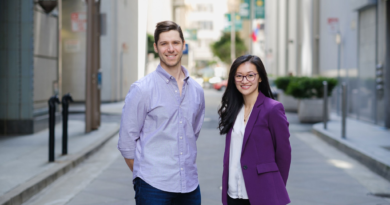This 51-year-old renter with Stage 3 breast cancer thought she’d ‘go to her grave’ without owning a home. That was until she found Divvy Homes’ rent-to-own program
Kimberly Rudy, a lifelong renter, mother, and breast cancer survivor, never thought she’d be able to afford a home. Like many Americans in today’s strained housing market, she struggled to save up enough money for a down payment because rent payments leached away at her monthly income. Earning about $42,000 per year, she had been making $1,500 rent payments each month at the same rental home she’d had for 10 years, and was unable to direct enough money into savings to buy a house.
“Renting pretty much takes every penny you have,” Rudy says. “It’s like you’re being penalized by being forced to pay more for rent for something that’s never going to be yours.”
This was especially frustrating for someone who didn’t move around a lot and had dreamed of owning a home. Indeed, Rudy had been living in her rental house for more than a decade and had previously rented another property for seven years before that. Rudy’s daughter, Anna DeHaven, however, in 2021 found a viable solution that allowed her mom to finally be able to purchase a home in her early fifties.
How to go from renting to owning
Divvy Homes, a rent-to-own home service, helped Rudy start making rent payments toward her house for about 15 months before closing. Rudy, then 51, started the Divvy Homes program in spring 2021, right after she had been diagnosed with Stage 3 breast cancer.
Through Divvy Homes, Rudy selected a home within her price range in Rome, Ga., a small town with about 35,000 people. Then, Divvy Homes purchased the two-bedroom brick rancher for $137,000 in spring 2021 and rented it to Rudy for $1,430 per month. The company even covered repairs to the 1950s home post-inspection that the original seller wouldn’t—including a new water heater, HVAC system, and electrical wiring throughout the house.
What’s different about purchasing through the Divvy Homes program is that part of that monthly rental payment actually went into a savings account that would later be used to cover the down payment on Rudy’s eventual purchase of her home.
How do you afford to buy your fist home?
The Divvy Homes program is designed for hopeful homeowners, like Rudy, who either can’t afford a mortgage payment or don’t have enough money saved for a down payment and closing costs associated with a home purchase. Prospective homeowners can apply online through Divvy, which asks for financial information and the areas where the applicant is looking to purchase. Then, Divvy Homes gives approved applicants a shopping budget, and clients can choose any qualifying home on the market either through their own real estate agent or one through Divvy.
Divvy Homes then uses this budget to purchase the customer’s home in all cash. Indeed, many millennials and other buyers hoping to break into the housing market have gotten beaten out by all-cash offers—some in excess of tens or hundreds of thousands of dollars over asking prices. This process allowed Rudy to compete in a market that would have otherwise been challenging for her.
“I was never able to save up other than the rent save up [as part of the Divvy program], and additional money for down payment to purchase a home my whole life,” Rudy says. “Without it, I would still be renting and go to my grave without anything that I own.”
Closing on your first home
After selecting the home she wanted, Rudy moved into the house and started making rental payments. Rudy lived there for 15 months making rental payments before she was able to begin the process of buying the home from Divvy. The purchase price of the home from Divvy was $147,500 at a 5.25% mortgage, bringing her monthly payments, which include her mortgage and property taxes, down to $1,145—far less than her rental payments of more than $1,400 per month.
“There aren’t many houses on the market within that price range that are livable. They need a lot of renovations,” Rudy says. “If I was just starting the process, then I probably wouldn’t be able to afford [to buy] anything because everything would be out of my price range,” she adds, reflecting on how the Divvy process helped her secure a home.
The closing process was somewhat of a blur for Rudy, who was undergoing treatment for her cancer at the time. (She has since been in remission and is still recovering from the side effects of cancer treatments.) Luckily, DeHaven, who had experience working with a mortgage company for years, helped her mother through the process.
“The closing process was very easy,” DeHaven says. “We did an FHA [Federal Housing Administration] loan, and the down payment funds from Divvy were more than enough funds to close. She ended up getting back money.”
Rudy eventually closed on the house in August 2022.
“I’m actually saving money and have equity in something that is mine. I can do what I want and have something for my daughter, however she chooses to use it when I’m gone,” Rudy says. “It’s so much better to own a home. I feel like I’m more tied to the community because I am a property owner and a taxpayer now, so it’s the American dream.”
More Fortune coverage of the housing market and home ownership:




